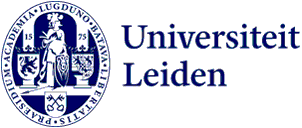
Bachelor thesis prizes Political Science 2022: the nominees
The thesis is the Grand Finale for our bachelor students. On their way to the finish, they have gathered considerable knowledge and insights, and acquired various skills. And, most likely, they have cleared a hurdle or two. The instructors at the Institute of Political Science highly appreciate this achievement—especially the final kilometres, in which their students have demonstrated the ability to conduct research independently, in a dialogue with the academic community. Tradition has it that the best bachelor theses are nominated for a place in the Hall of Fame. Who are competing for the yearly thesis prizes? On 21 October 2022 (Politicologie/Internationale Politiek) and 31 October/4 November 2022 (International Relations and Organisations) respectively, the winners will be announced.
BSc Political Science: International Relations and Organisations—the shortlist
On behalf of the Institute of Political Science, Babak RezaeeDaryakenari and Petr Kopecký face the difficult task of picking a winner from a very strong field of contenders from the BSc Political Science: International Relations and Organisations. The outcome of the jury’s studies and deliberation will be announced on Friday 31 October and Friday 4 November 2022, during the IRO graduation ceremony in the Academy Building in Leiden.
- Jack Andrews, The Alliance Security Dilemma, NATO and strategic consensus: How can the alliance security dilemma explain NATO’s strategic consensus on China? (supervisor: Stephen Haigh)
- François Barré, Beyond good and bad theories of knowledge: Genealogy, truth-seeking, and relations of causality in Nietzsche and Foucault (supervisor: Matthew Longo)
- Franziska Boenisch, Maritime piracy at the Horn of Africa: The role of international organizations in global crime governance (supervisor: Janina Heaphy)
- Oscar Laviolette Di Carpegna, The cost of sovereignty: Statism and the distribution of climate change duties (supervisor: Jelena Belic)
- Maria Victoria Folkerts Cincurá, UN Peacekeeping and reintegration of survivors of sexual assault: An evaluation of the services provided to assist the psychological treatment of victims of sexual assault in Congo (supervisor: Arlinda Rrustemi)
- Carla Constanze Kipke, Revising reciprocal relations of global justice (supervisor: Marco Verschoor)
- Sophia Carine O’Brien, The enemy of my enemy is my friend: Explaining negotiations between pro-government on-side groups in Somalia (supervisor: Jonah Schulhofer-Wohl)
- Essi Maria Teresia Pekonen, Framing Palestine: How the BDS movement employs human rights to mobilize corporations (supervisor: Corinna Jentzsch)
- Lea Schiller, Should parties emphasise nationally important issues in election campaigns? The effect of national issue salience on the impact of issue ownership on vote choice (supervisor: Joshua Robison)
- Lara Wiedmann, Is the GSP+ a plus for the environment? A comparative analysis of the EU’s GSP+ on countries’ compliance with the Basel Convention (supervisor: Rutger Hagen)
Prof. Dr. J.Th.J. van den Berg Prize 2022 (best thesis Politicologie/Internationale Politiek): the shortlist
The jury for the programme BSc Politicologie and the specialisation Internationale Politiek, consisting of SPIL-delegate Emma Breed (student-member and chair), Joop van den Berg, Maria Spirova and Marco Verschoor, is currently deep reading the nominated theses. The winner will be announced during the diploma ceremony on Friday 21 October 2022 in the Leiden Academy Building.
- Jorgos Achimastos, Negatieve campagnevoering en de invloed op kiesgedrag (supervisor: Marijn Nagtzaam)
- Renee Kolpa, The politics of migration categories: The case of the ‘economic refugee’ in the Netherlands (supervisor: Katharina Natter)
- Ingmar Johannes Jansen, EU-Russia energy relations and sanctions (supervisor: Karolina Pomorska)
- Niels de Brabander, Moddergooien in de polder. Negatieve campagnevoering op Twitter tijdens de Tweede Kamerverkiezingen van 2021 (supervisor: Tim Mickler)
- Merel van Assem, The gendered refugee journey; A qualitative analysis of the experiences of female and male refugees after violent conflict (supervisor: Katharina Natter)
